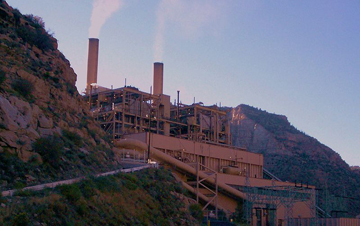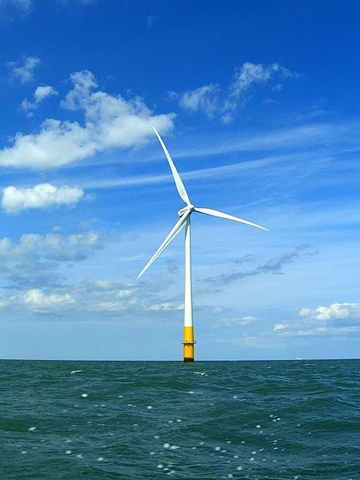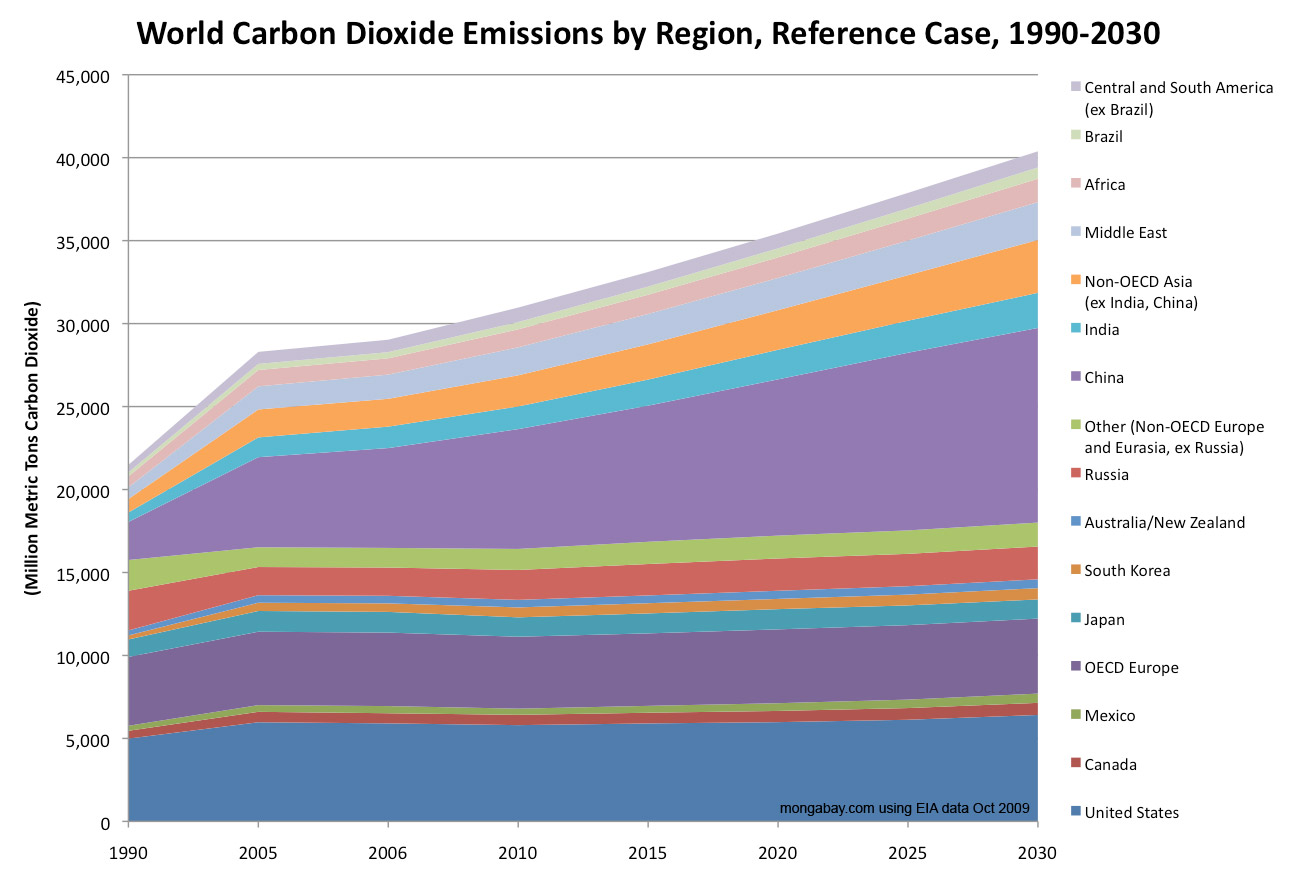Sober up: world running out of time to keep planet from over-heating
Posted on 7 November 2011 by John Hartz
The following article, written by Jeremy Hance, was originally posted on Mongabay.com (Oct 24, 2011). It is reprinted here with permission.
If governments are to keep the pledge they made in Copenhagen to limit global warming within the 'safe range' of two degrees Celsius, they are running out of time, according to two sobering papers from Nature. One of the studies finds that if the world is to have a 66 percent chance of staying below a rise of two degrees Celsius, greenhouse gas emissions would need to peak in less than a decade and fall quickly thereafter. The other study predicts that parts of Europe, Asia, North Africa and Canada could see a rise beyond two degrees Celsius within just twenty years.
Running out of time
How do we stay below a global rise of two degrees Celsius? According to a new study involving researchers various climate institutes, greenhouse gas emissions would need to peak during the decade and fall to 44 gigatons by 2020. Emissions this year are expected to hit 48 gigatons. Dropping 4 gigatons may appear easier than it is as experts consider many future emissions to already be 'locked in' due to fossil fuel power plants that are already running or currently under construction. In this case, some power plants would have to be abandoned altogether to keep the world under two degrees Celsius. However, even this scenario provides only a 'likely' avoidance of keeping warming below two degrees Celsius. For a much more certain effort (90 percent chance) emissions would need to peak during the decade but fall even more quickly. In addition, negative emissions, i.e. sequestering carbon from the atmosphere, would be required.
Castle Gate coal-fired power plant in Utah. Nearly half of the US's electricity is from coal, the most carbon intensive energy. Photo by: David Jolley.
Given these findings international agreements and national pledges made to date will not keep the world below two degrees Celsius warming.
"There are significant risks that the [two degrees Celsius] target, endorsed by so many nations, is already slipping out of reach," write the authors.
Still, a number of poorer and climate-vulnerable nations are pushing for halting global warming at 1.5 degrees Celsius, a target viewed as safer for many parts of the world. The recent study found that none of the 139 models they surveyed, no matter how aggressive at cutting emissions, limited warming to 1.5 degrees Celsius.
"However," write the authors, "some scenarios in our set bring warming back below 1.5 Celsius by 2100: a first scenario does so with a probability of about 50 percent, and a second scenario with a 'likely' chance (better than 66 percent)."
In our lifetimes
Contrary to the perception that climate impacts are far in the future, new research and evidence shows that climate change is at our doorstep—if not already inside the house. The other study from Nature finds evidence that if greenhouse gas emissions remain high, the Earth will cross the two degree Celsius threshold by 2060. Even then many regions are set to pass the target much sooner as warming is not uniform throughout the world; in general the northern hemisphere warms quicker than the south.
"Large parts of Eurasia, North Africa and Canada could potentially experience individual five-year average temperatures that exceed the 2 degree Celsius threshold by 2030—a timescale that is not so 'distant'," the authors write.
Such a rise is expected to have impacts on agricultural production, sea levels, biodiversity, extreme weather, public health, food security, and even warfare.
Political mire
Avoiding rising above two degrees Celsius is entirely possible: a recent study in Energy Policy found that fossil fuels could be wholly abandoned by 2050 with the world's energy needs met by electricity produced 90 percent from wind and solar sources alone. The final 10 percent could be generated by geothermal, hydro, wave, and tidal power. Ground transportation would be run by electricity or hydrogen fuel cells, and planes would be powered by liquid hydrogen.
Kentish Flats wind power in the UK. Photo by: Phil Hollman.
However, the effort to push toward such an energy revolution has been stymied for decades by a lack of political will and finger pointing. The US, the world's historically largest emitter of climate change, blames rising powers like China and India for not doing enough as their emissions are rising the fastest. For their part, China and India blame the US and other wealthy nations for not accepting deeper cuts, since they share the brunt of historic responsibility.
Even after decades of increasingly dire warnings, the US has still not passed comprehensive federal legislation to combat global warming; Canada has abandoned past pledges in order to exploit its emissions-heavy tar sands; China continues to depend on coal for its energy production; Indonesia's effort to stem widespread deforestation is facing stiff resistance from industry; Europe is mulling pulling back on its more ambitious cuts if other nations do not join it; northern nations are scrambling to exploit the melting Arctic for untapped oil and gas reserves; and fossil fuels continue to be subsidized worldwide to the tune of $400 billion. Meanwhile global population continues to soar (set to hit seven billion at the end of this month) and greenhouse gas emissions remain on the rise. The only nation that appears to take climate change truly to heart is the small Pacific island nation of the Maldives, which has pledged to be carbon neutral—eliminating or off-setting all emissions—by 2020. The Maldives is imperiled by rising sea levels that could put parts of the islands underwater for good.
Not everything is gloom-and-doom. Australia is close to enacting its first tax on carbon emissions. California, the world's eighth-largest economy, has approved rules for its cap-and-trade program set to begin in 2013. Investment in clean energy has jumped 670 percent in less than a decade with China well out front and Germany moving aggressively to a renewable-energy society.
The next chance for the international community to come together to address climate arrives in little more than a month at the UN climate talks in Durban, South Africa. However, international chatter ahead of the climate talks have expressed low expectations for any binding agreement.
EIA data on possible emission levels to 2030. Click to enlarge.
Citations:
Joeri Rogelj, William Hare, Jason Lowe, Detlef P. van Vuuren, Keywan Riahi, Ben Matthews, Tatsuya Hanaoka, Kejun Jiang and Malte Meinshausen. Emission pathways consistent with a 2 C global temperature limit. Nature Climate Change. DOI: 10.1038/NCLIMATE1258. 2011.
Manoj Joshi, Ed Hawkins, Rowan Sutton, Jason Lowe and David Frame. Projections of when temperature change will exceed 2 °C above pre-industrial levels. Nature Climate Change. DOI: 10.1038/NCLIMATE1261. 2011.
Mark Z. Jacobson, Mark A. Delucchi. Providing all global energy with wind, water, and solar power, Part I: Technologies, energy resources, quantities and areas of infrastructure, and materials. Energy Policy, 2010; DOI: 10.1016/j.enpol.2010.11.040
Mark A. Delucchi, Mark Z. Jacobson. Providing all global energy with wind, water, and solar power, Part II: Reliability, system and transmission costs, and policies. Energy Policy, 2010; DOI: 10.1016/j.enpol.2010.11.045































 Arguments
Arguments

































[DB] "As far as climate, the US has been cooling so that is a hard sell."
Straw man. You say climate but mean weather/season. It is November in the USA so the temperatures do their seasonal trend downwards. Seasonal cycle superimposed on the long-term rise in global (not just the US) temperatures.